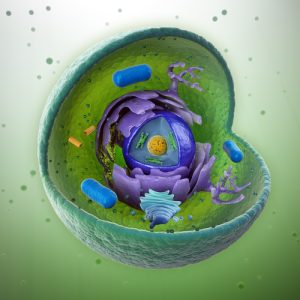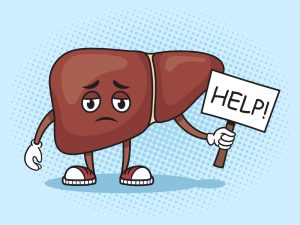 Does the mention of the word camel make you think of pack animals that spit and smell and roam the desert. Have you heard about camel milk?
Does the mention of the word camel make you think of pack animals that spit and smell and roam the desert. Have you heard about camel milk?
The idea of pouring camel milk over your cereal or cooking up camel steak might seem strange, but this animal has been a staple of diets in certain communities for thousands of years. Now, camels are on the rise beyond their traditional homelands and their produce is cropping up on shelves around the globe.
“According to the UN, camels already contribute about 8 per cent of total milk production in Sub-Saharan Africa. Meanwhile, market research estimates that the global camel milk trade could exceed $13 billion by the end of the decade, up from $1.3 billion in 2022.” “It is pretty rapid growth,” Dr Ariell Ahearn, departmental lecturer in human geography at the University of Oxford, tells BBC Science Focus.
Ahearn explains that in countries like Saudi Arabia, the United Arab Emirates, Kazakhstan and Mongolia, camel milk is already commonplace in grocery store refrigerators and that as investors spy a good business opportunity, money is pouring into new farms across the region. “By 2050, it’s possible we’ll have more choice between cow’s milk and camel’s milk in the UK,” she says.
Indeed, farms are beginning to crop up in the western countries too. The largest farm in the US now spans over 1,000 acres in the hill country of Missouri and hosts over 200 camels.
So, with their rise in popularity all but assured, could camels be the new cows, taking over pastures (or sand dunes?) around the world? Why are we seeing a shift to camels?
There is an important reason to highlight why camels are a part of our future food chain.
“Climate change is causing global temperatures to rise, with habitats across the planet becoming increasingly inhospitable to life. Frankly, cows just aren’t going to cut it in some places in the world where temperatures are expected to soar and pressures on food security are increasing; but camels might.”
There are several benefits to using camels in arid climates, explains Ahearn and her colleague Dr Ilse Köhler-Rollefson, a pastoralist, veterinarian and author of Camel Karma: Twenty years among India’s camel nomads.
Firstly, camels are designed for harsh conditions. “Cows are fine in Europe in a temperate climate,” Köhler-Rollefson says, “but I mean, where there are camels naturally, it’s obviously better to use camels.”
While Köhler-Rollefson isn’t in favour of setting up super-camel farms akin to the super-dairy farms operating today, she points out, for example, that “one of the arguments that’s been made in favor of it is that camels don’t need air conditioning since they can put up with high temperatures.”
More significantly, camels are just more efficient than cows at turning food and water inputs into meat and dairy outputs – vital in regions where food and water are already scarce.
“If you were to compare one litre of camel milk to one litre of cow milk, you need a lot less feed and water to produce the camel milk,” says Ahearn.
“Research backs this up. A 2022 study published in the journal Nature Food showed that as environmental conditions worsen in Sub-Saharan Africa, replacing cattle populations with camel and goat farms could easily pick up the slack – milk production actually increased in the scenario, with water and food demand decreasing. At the same time, greenhouse gas emissions shrank.”
A major source of emissions in cattle farming comes from the cows themselves when they burp and fart. Camels are better on that front too, with research in the journal PLOS “One showing that the humped nomads produce significantly less methane – the potent greenhouse gas that traps 28 times more heat in the atmosphere than carbon dioxide – than ruminants. ”
Dairy was essential to the survival of ancient humans in extreme environments
Which vegan milk is best for the environment? Is it time for you to add camels to your diet? At this point, you might be convinced that in some areas of the world, it’s time to give change from cows to camels. But does this mean you’ll end up having camel milk cocoa before bed?
Health Benefits
Whereas climate necessity may warrant a shift away from cows in some parts of the world, the health benefits of consuming camel products might force a shift in places where the climate isn’t the issue.
“Camel milk has a much higher vitamin C and iron content than cow milk; it can be consumed by people who are lactose intolerant; and it usually has a low-fat content,” says Köhler-Rollefson.
Moreover, research suggests it can lower blood sugar and improve insulin sensitivity in people with diabetes, and it even contains immune system-boosting ingredients.
As for the meat, compared to beef or lamb, camel meat is leaner, lower in cholesterol and higher in iron – in other words, healthier.
Camels: coming to a farm near you?
Despite the success of a handful of camel farms in the US and Europe, both Ahearn and Köhler-Rollefson remain skeptical about whether they’ll completely replace cows across swathes of Western countries.
In other regions where it makes more sense to employ this ancient creature to meet food needs, the pair wants to see a move away from an industrialized model where animals are kept in confined spaces.
Köhler-Rollefson, who owns a camel dairy business herself, says it “defeats the ecological purpose of camels because they have these long legs and they can walk for hours, converting energy from the Sun embedded in drought-resistant desert plants into food for us.”
She hopes that a more free-range, nomadic model of farming will “demonstrate an alternative to industrialized farming that is more environmentally friendly. Camels are a great example of that because they’re so resilient to climate hazards and variability.”
Want to know more about Camel Milk – PureLife Care+
 Metabolism is about how a child’s body creates energy, fights disease, and keeps them alive and thriving. It’s the system behind the scenes that controls almost everything – energy levels, hormones, heart health, and even the brain.
Metabolism is about how a child’s body creates energy, fights disease, and keeps them alive and thriving. It’s the system behind the scenes that controls almost everything – energy levels, hormones, heart health, and even the brain.
 Does the mention of the word camel make you think of pack animals that spit and smell and roam the desert. Have you heard about camel milk?
Does the mention of the word camel make you think of pack animals that spit and smell and roam the desert. Have you heard about camel milk? Metabolism is the process of cells creating energy from food. Well-functioning cells create a healthy body. The Mitochondria are the powerhouse of the cell. It is where this energy is created. It is used to drive almost every chemical reaction within our bodies.
Metabolism is the process of cells creating energy from food. Well-functioning cells create a healthy body. The Mitochondria are the powerhouse of the cell. It is where this energy is created. It is used to drive almost every chemical reaction within our bodies. Cellular Health – People often find it hard to understand health information. We try to fix that by giving you not only simple definitions but understandable concepts so you can learn the information, and you can improve and maintain your health.
Cellular Health – People often find it hard to understand health information. We try to fix that by giving you not only simple definitions but understandable concepts so you can learn the information, and you can improve and maintain your health. Recently, there are quite a few ads praising the weight loss gotten from injecting a drug into your stomach. It is referred to as Pharmaceutical Weight Loss.
Recently, there are quite a few ads praising the weight loss gotten from injecting a drug into your stomach. It is referred to as Pharmaceutical Weight Loss. The liver is the major organ for detoxification. It detoxifies, by metabolizing toxins and/or secreting the toxins out of the body. A damaged fatty liver cannot work to do its job.
The liver is the major organ for detoxification. It detoxifies, by metabolizing toxins and/or secreting the toxins out of the body. A damaged fatty liver cannot work to do its job.
 I heard a commerical for a drug that was designed to stop a virus from replicating. Really, I thought, why not just use elderberry. I knew that was what elderberry did.
I heard a commerical for a drug that was designed to stop a virus from replicating. Really, I thought, why not just use elderberry. I knew that was what elderberry did. We talked before about the Gut-Brain Axis and the relationship and how it can affect your health. You can read about it here –
We talked before about the Gut-Brain Axis and the relationship and how it can affect your health. You can read about it here –  This is of interest to the aging public. Dementia, Alzheimer’s, etc. etc. You hear about it often.
This is of interest to the aging public. Dementia, Alzheimer’s, etc. etc. You hear about it often.